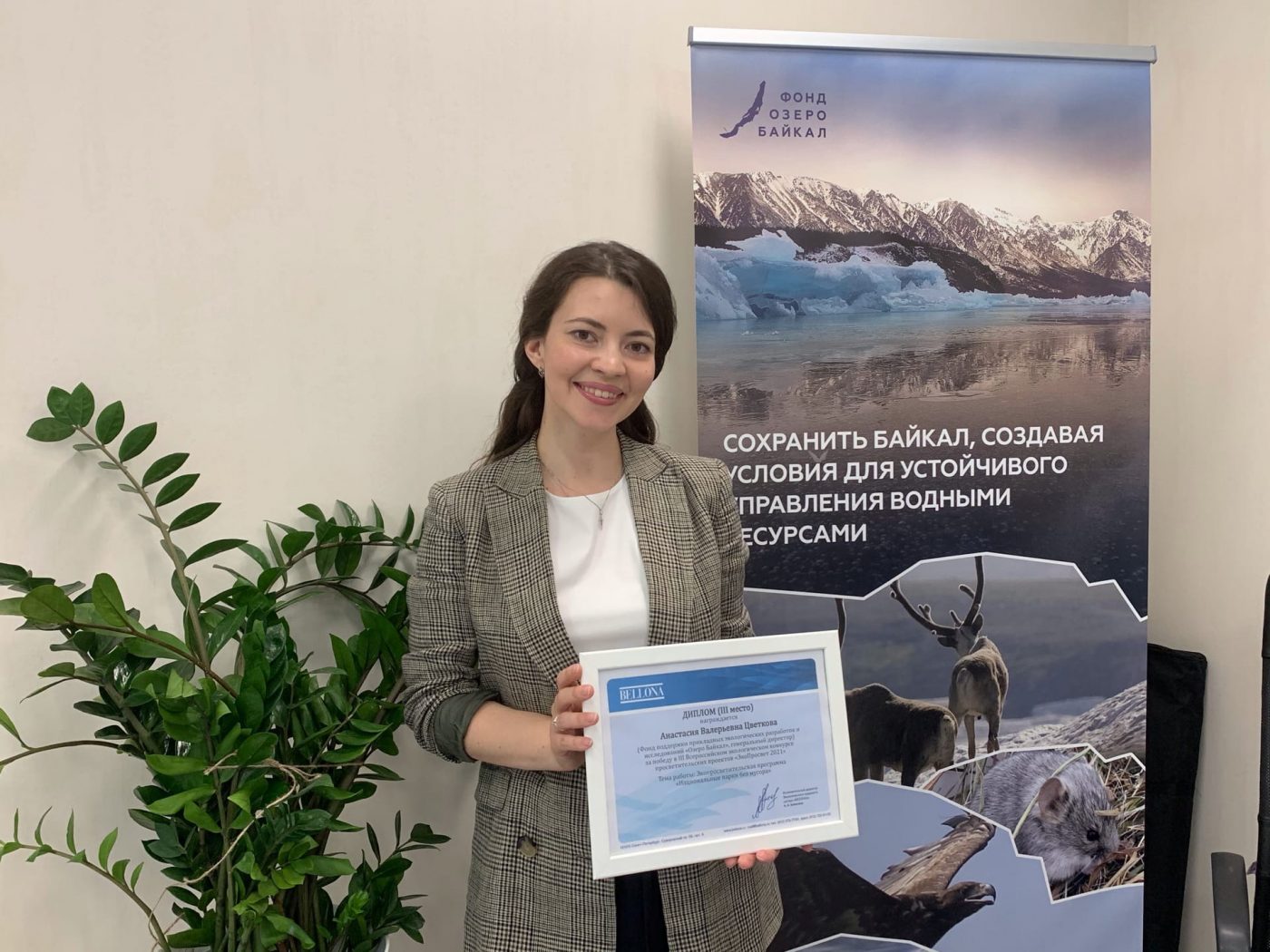On May 25, 2021, the results of the III All-Russian environmental contest of educational projects EcoProsvet 2021 were summed up. It is organized by the Environmental Legal Center BELLONA, the magazine Ecology and Law and the website bellona.ru. Lake Baikal Foundation’s Trash Free National Parks program took 3rd place in the Environmental Education Program nomination as part of the Waste thematic section. The Foundation became the only prize-winner from the non-profit sector that does not belong to the category of educational institutions.
In addition to educational institutions, other commercial and non-profit organizations, as well as activists involved in the ecoeducational process took part in this contest. The geographical scope of this event covered not only many Russian regions, but also foreign countries, for example Belarus. As applications for the contest, completed or still ongoing projects were accepted. Those had to be presented in the form of methodological materials.
Based on the contest results, the organizers publish a collection of best practices for the implementation of environmental education classes and programs. This collection includes the works of the winners, as well as other projects noted by the jury. Every year, a collection of the best works is published in the open access on the organizers’ website, which makes it easy to reach information about interesting solutions in the environmental education sphere, as well as to adopt successful methods and adapt them to own projects. Now, the methodological materials of Lake Baikal Foundation will be available to everyone interested in this topic, which is supposed to increase the Foundation’s contribution to the formation of positive environmental thinking.
The winning Trash Free National Parks program has been implemented by the Foundation since 2019 and is aimed at a systematic solution to the problem of household waste left on the territory of national parks around Lake Baikal. During the conduction of the project, a separate waste collection system was introduced on the territory of the Zabaikalsky National Park and more than 20 000 people were educated on the topic of responsible waste management.
We would like to thank the organizers and the jury for the opportunity to take part in the contest and share our experience in conducting a successful environmental education program with a wide audience!


